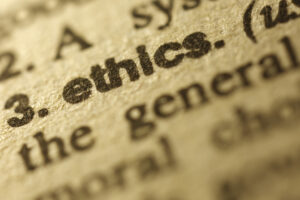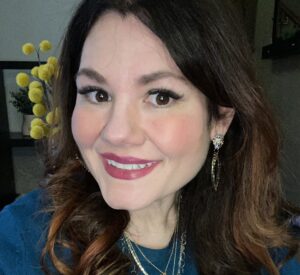 Retired Harford County, Maryland State’s Attorney Joseph Cassilly has been disbarred after allegations he knowingly failed to disclose exculpatory evidence in a murder case and made false statements to a court regarding that evidence.
Retired Harford County, Maryland State’s Attorney Joseph Cassilly has been disbarred after allegations he knowingly failed to disclose exculpatory evidence in a murder case and made false statements to a court regarding that evidence.
But rather than be chastised over the rebuke, he gave the following statement to the Baltimore Sun:
“I’m disappointed, but the real answer is: Do I care? I don’t give a damn,” Cassilly said. “I wouldn’t do anything to engage in the practice of law right now because it’s such a screwed-up obscenity.”
Cassilly said he had fallen into “the whole anti-criminal justice movement, where the cops are the bad guys and the prosecutors are the bad guys.”
Ummm… that is not — like at all — what’s happened here. The Maryland Court of Appeals is not some liberal agent of change. The ethic standards they found Cassilly violated are some pretty basic stuff. And, honestly “the whole anti-criminal justice movement” is BECAUSE of abuses like those leveled at Cassilly.
Here’s how that Maryland court described the case, which is pretty brutal:
“This attorney discipline proceeding involves a lawyer who, in his capacity as a prosecutor, knowingly and intentionally failed to disclose for more than a decade exculpatory evidence that came to light after a defendant’s conviction, discarded the evidence, knowingly made false statements of fact to a court and defense counsel concerning the content of the evidence, opposed the defendant’s postconviction petitions and sought to have forensic evidence that was the subject of the defendant’s post-trial request for review destroyed, and, during bar counsel’s investigation, failed to comply with a subpoena to provide a statement under oath.”
The specifics revolve around the conviction of John Norman Huffington for a 1981 double murder, in which Cassilly was the prosecutor. Huffington’s first conviction was overturned in 1982, and his retrial was in 1983. During that second trial, FBI agent Michael P. Malone testified about hair samples that were used to convict Huffington. Huffington was sentenced to life in prison in 1992, and his lawyers continued to file postconviction petitions.

Skills That Set Firms Apart
Legal expertise alone isn’t enough. Today’s most successful firms invest in developing the skills that drive collaboration, leadership, and business growth. Our on-demand, customizable training modules deliver practical, high-impact learning for attorneys and staff—when and where they need it.
It was in this postconviction time that new, potentially exculpatory, evidence was discovered, as reported by ABA Journal:
In 1997, the FBI released a report on alleged misconduct by the FBI laboratory that criticized 13 laboratory examiners. The report included a section on allegations against Malone regarding false testimony to a congressional committee investigating a federal judge, Alcee Hastings. The report concluded that Malone testified falsely to Congress.
Huffington’s counsel received a copy of the report, as did Cassilly.
The FBI then hired forensic scientists to review cases in which the criticized examiners did work that was material to a conviction.
A reviewer found that Malone’s testimony in the Huffington case was consistent with the laboratory report but inconsistent with his bench notes. The reviewer also said that in the co-defendant’s trial, Malone testified that he personally performed some tests that were most likely conducted by technicians.
In Huffington’s trial, the reviewer said, he couldn’t determine whether Malone performed the appropriate tests in a scientifically acceptable manner. Malone had matched or eliminated some hair without describing the microscopic characteristics observed in the evidence samples and control samples, the reviewer said.
But that 1999 report was never provided to Huffington’s lawyers. In 2003, Cassilly requested to have he forensic evidence in Huffington’s case destroyed, but that was denied.
In November of 2010, a writ of actual innocence was filed on Huffington’s behalf, citing a National Academy of Sciences report concluding there’s no scientific support for the type of hair identification used in the trial and citing the 1997 report. At this time, Cassilly still did not disclose the 1999 report and wrote:
“No evidence has been presented that the conclusion that examiner Malone rendered in court is not correct. References that Malone was found deficient in another case may be impeaching, but it does not prove that his observations in this case are incorrect.”
But it gets even worse.
A Washington Post reporter obtained the 1999 review through a Freedom of Information Act request. Huffington’s lawyer cited the newly discovered evidence. The FBI then performed DNA evidence on the hair samples that excluded Huffington as the source of the hairs.
A court ordered a new trial for Huffington in 2013. In 2014, a special counsel to the Department of Justice said Malone’s testimony about hair comparisons in Huffington’s case “exceeds the limits of the science.”
Cassilly got copies of the special counsel’s conclusions in the case of Huffington and his co-defendant. He did not forward the information to Huffington’s lawyers.
Eventually, Huffington entered Alford pleas limiting his sentence to time served. And then he filed the ethics complaint, which would eventually lead to Cassilly’s disbarment.
In said ethics case, Cassilly also refused to make a statement under oath (though he did speak with bar counsel investigators) saying:
“I said you are not asking me about stuff from 20 years ago and then criticizing me or trying to pull me up on some sort of perjury charge because I couldn’t remember accurately what we were talking about from 20 years ago,” he said.
Because that’s really the cherry on this “what not to do” ethics sundae.
 Kathryn Rubino is a Senior Editor at Above the Law, host of The Jabot podcast, and co-host of Thinking Like A Lawyer. AtL tipsters are the best, so please connect with her. Feel free to email her with any tips, questions, or comments and follow her on Twitter (@Kathryn1).
Kathryn Rubino is a Senior Editor at Above the Law, host of The Jabot podcast, and co-host of Thinking Like A Lawyer. AtL tipsters are the best, so please connect with her. Feel free to email her with any tips, questions, or comments and follow her on Twitter (@Kathryn1).
